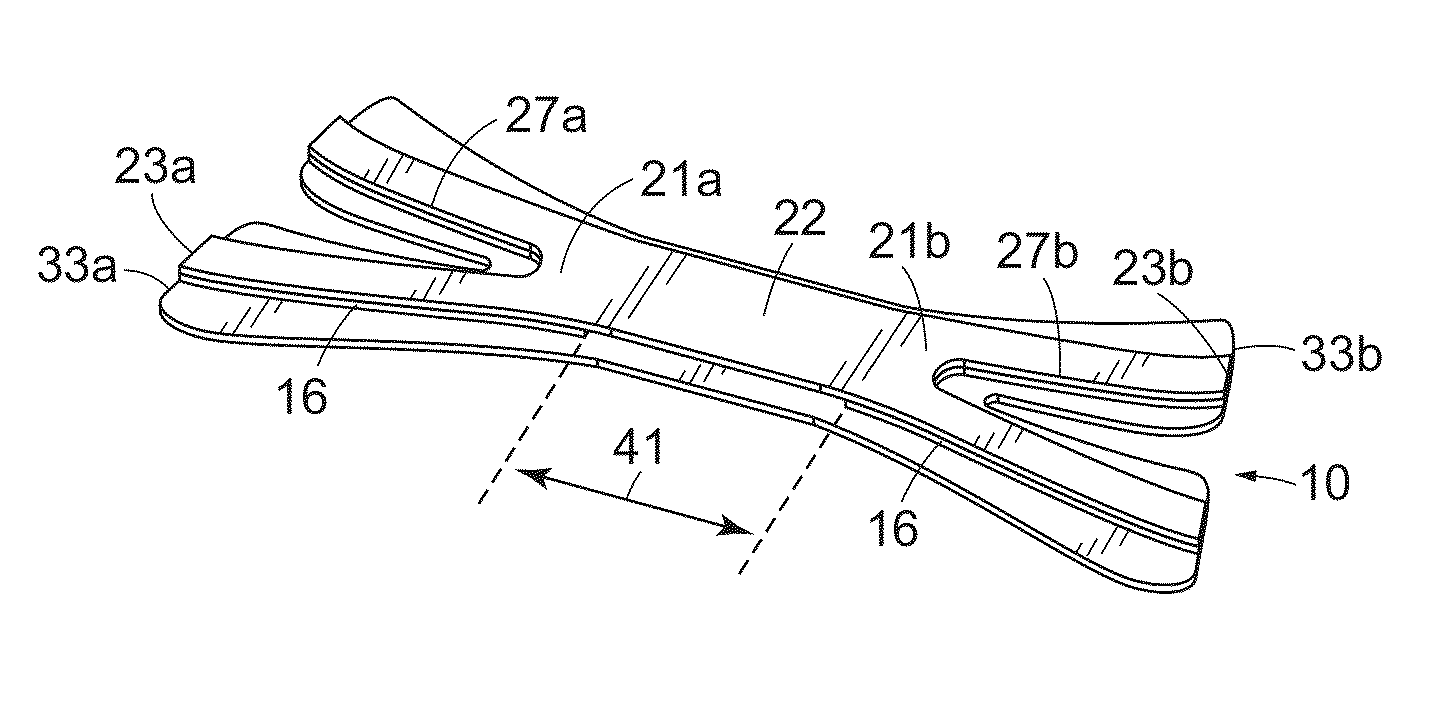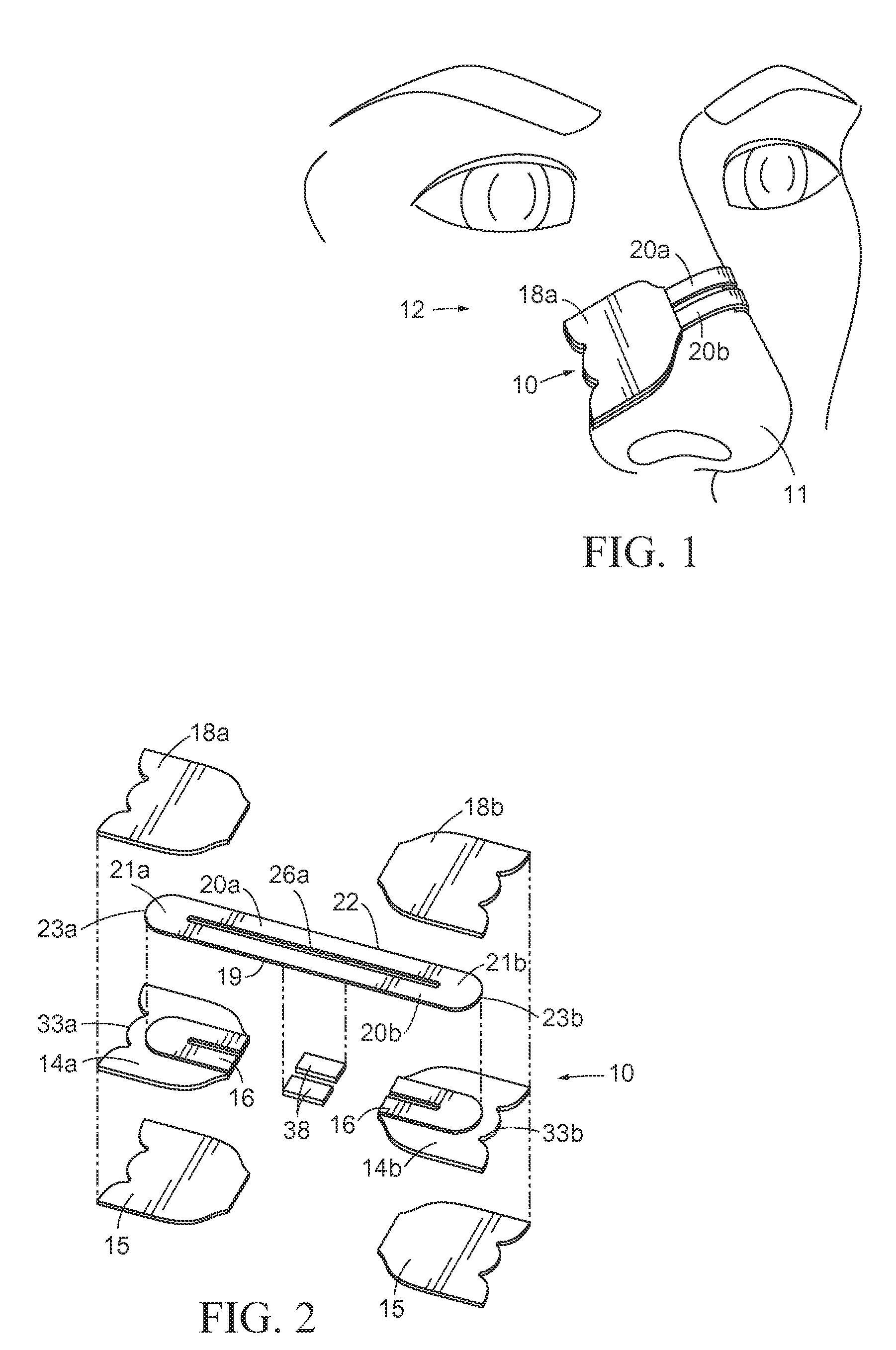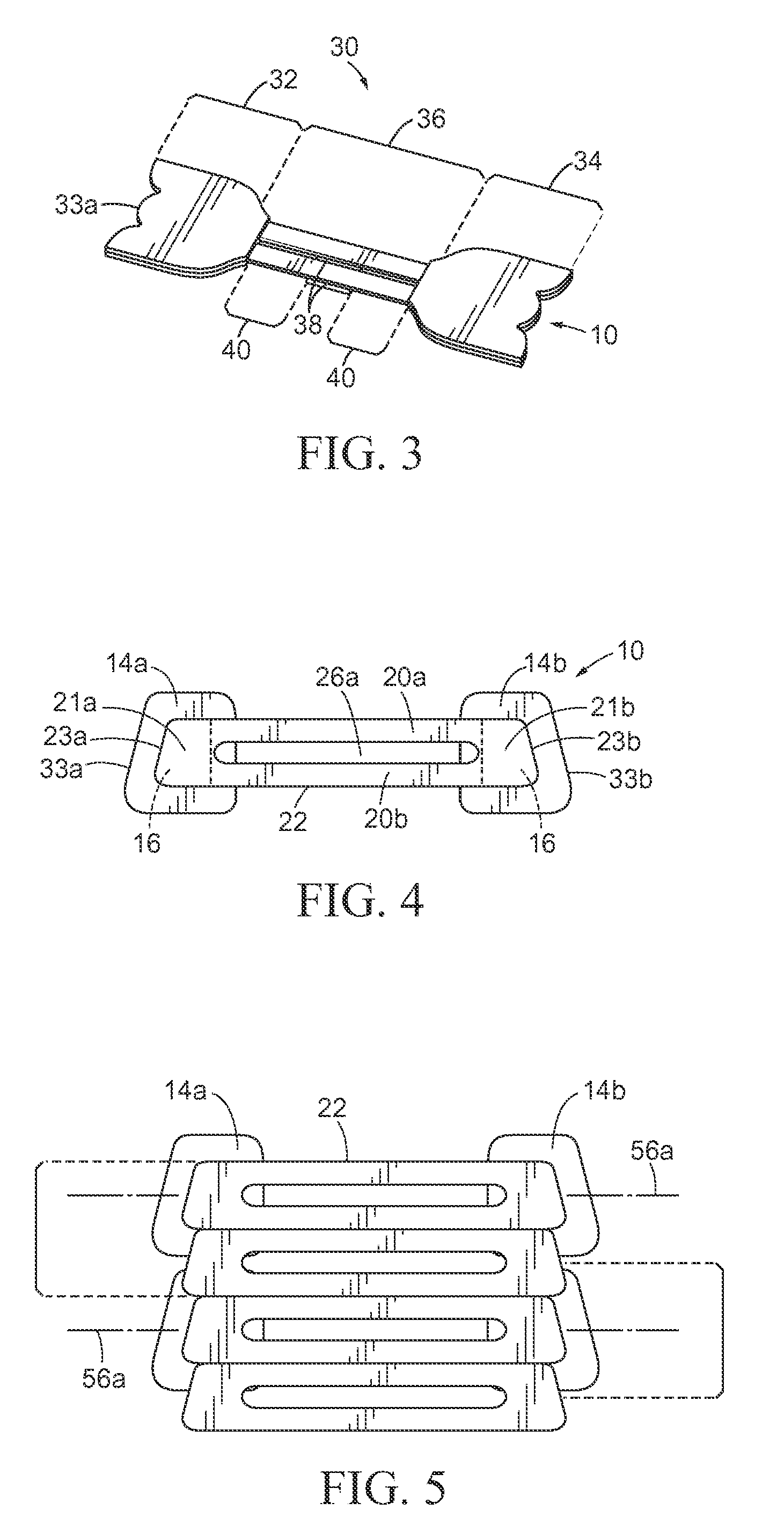Economical nasal dilator and method of manufacture
a dilator and economic technology, applied in the direction of dilators, respirators, breathing protection, etc., can solve the problems of affecting breathing, sleep disturbance, irregularities and general discomfort, and typically has limited properties, so as to facilitate assembly and application, facilitate manufacturing with minimal material waste, and easy to remove
- Summary
- Abstract
- Description
- Claims
- Application Information
AI Technical Summary
Benefits of technology
Problems solved by technology
Method used
Image
Examples
Embodiment Construction
[0040]An embodiment of nasal dilator, 10, in accordance with the present invention, is illustrated in FIG. 1 which shows dilator 10 engaged to a nose, 11, seen as a portion of a human face, 12.
[0041]As illustrated in FIG. 2, dilator 10 comprises a laminate of vertically stacked layers, each comprising at least one member which may include components thereof, including: a base layer composed of discreet first and second base layer pads, 14a, and 14b, which may be formed as a single member; a resilient layer composed of a pair of spaced apart upper and lower resilient bands, 20a and 20b joined together at end portions, 21a, and 21b, respectively, to form a single resilient member, 22; and a cover layer composed of discreet first and second cover layer pads, 18a and 18b, which may be formed as a single member. First and second cover layer pads 18a and 18b may have like or dissimilar dimensions as first and second base layer pads, 14a and 14b. A protective layer of release paper liner, ...
PUM
| Property | Measurement | Unit |
|---|---|---|
| length | aaaaa | aaaaa |
| length | aaaaa | aaaaa |
| thick | aaaaa | aaaaa |
Abstract
Description
Claims
Application Information
 Login to View More
Login to View More - R&D
- Intellectual Property
- Life Sciences
- Materials
- Tech Scout
- Unparalleled Data Quality
- Higher Quality Content
- 60% Fewer Hallucinations
Browse by: Latest US Patents, China's latest patents, Technical Efficacy Thesaurus, Application Domain, Technology Topic, Popular Technical Reports.
© 2025 PatSnap. All rights reserved.Legal|Privacy policy|Modern Slavery Act Transparency Statement|Sitemap|About US| Contact US: help@patsnap.com



